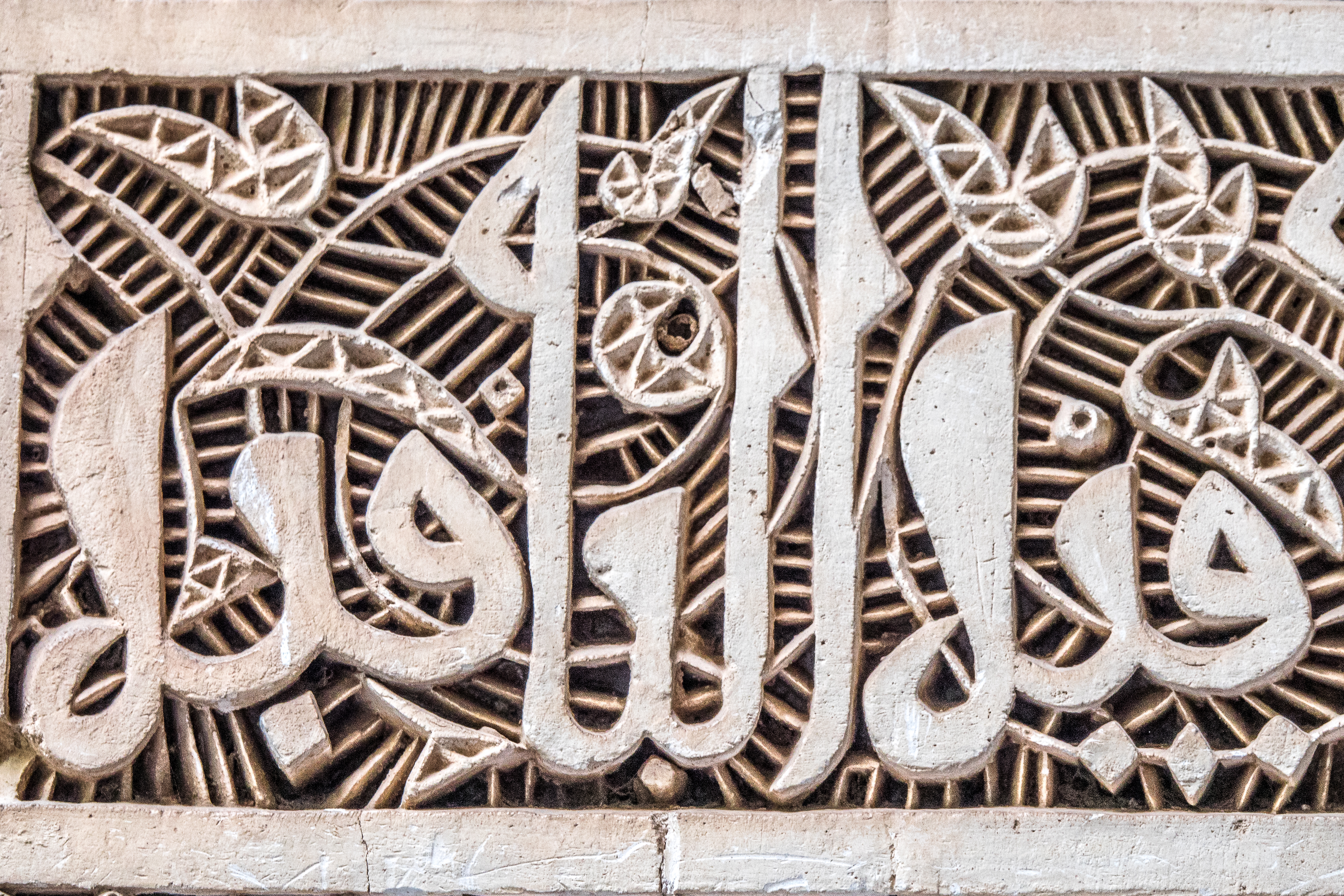An Analytical and Research Study of the Morphological and Syntactical Discussions in Fath al-Bari by Ibn Rajab al-Hanbal
Keywords:
Qur'an, Hadith, Arabic language, Islamic teachings, Sarf, Nahw, Fath al-Bari, Ibn Rajab, Arabic grammar, linguistic sciencesAbstract
The Holy Qur'an and the Blessed Ahadith are in pure Arabic, which is the foundation of the unbreakable, global, and everlasting bond among Muslims. To truly understand Islamic teachings, one must gain deep insight and mastery over the primary sources of Islam—the Qur'an and Hadith—through expertise in the Arabic language and literature. When Islam remained in the Arabian Peninsula, it was naturally connected to the native speakers of Arabic, and this connection was passed down from one generation to the next. As a result, there was no difficulty in comprehending the Qur'an and Hadith. However, as Islam expanded beyond Arabia through conquests, and non-Arabs embraced Islam, several challenges arose, one of the most significant being the correct understanding of the Qur'an and Sunnah. To address this issue, a variety of scholarly pursuits were initiated, including the development of various sciences and disciplines. Among these, the sciences of Arabic morphology (Sarf) and syntax (Nahw) became crucial. The correct and complete understanding of the Qur'an and Hadith fundamentally relies on these sciences. In this context, the Hadith scholars have emphasized the importance of these linguistic tools while explaining and interpreting the Ahadith. The present paper examines these discussions, particularly focusing on the work Fath al-Bari by Ibn Rajab al-Hanbali, highlighting the role of Arabic grammar and morphology in the proper understanding of Hadith and Qur'anic texts.
Downloads
References
: ابن رجب، ابن شهاب الدين ،فتح الباری فی شرح الصحیح البخاری، السودیہ: دار ابن حزم، 1996ء، كتاب الحيض، باب الطیب للمراۃ عند غسلھا من المحیض (ج/ 1ص: 404).
ابن منظور، محمد بن مکرم الافریقی،لسان العرب ،بیروت :دار صادر،1956ء(ج/ 3 ،ص:513)
: ابن رجب، كتاب الحيض، ایضاً (ج/ 1ص: 405).
جوہری، اسماعیل بن حماد، الصحاح تاج اللغۃ و صحاح العربیۃ، بیروت: دار العلم والملائن، 1987ء(ج/ 2، ص: 730)
: ابن رجب، كتاب الحيض، باب دلک المراۃ نفسھا اذا تطھرت من المحیض الخ (ج/ 1ص: 408).
: ابن رجب، كتاب الصلاة، باب قبلۃ اھل المدیںہ و اھل الشام والمشرق (ج/ 2ص: 232).
: ابن رجب، كتاب الصلاة، باب ما یستر من العورۃ (ج/ 2ص: 143).
: ابن رجب، كتاب الاستسقاء، ما یقول اذا امطرت (ج/ 6ص: 241).
: ابن رجب، كتاب الإيمان، باب قول النبی ﷺ: انا اعلمکم باللہ (ج/ 1ص: 111).
: ابن رجب،كتاب الإيمان، باب من الدین فرار من الفتن (ج/ 1ص: 122).
: ابن رجب، ایضاً (ج/ 1ص: 122).
: ابن رجب، كتاب الإيمان، باب من احب الدین الی اللہ ادومہ (ج/ 1ص: 163).
: ابن رجب،كتاب الإيمان، باب سؤال الجبریل الی النبی ﷺ (ج/ 1ص: 198).
جوہری، الصحاح، 5، 1875
: ابن رجب، كتاب الحيض، ایضاً (ج/ 1ص: 346).
: ابن رجب، ایضاً (ج/ 1ص: 346).
: ابن رجب، كتاب الحيض، باب من سمی النفاس حیضا (ج/ 1ص: 359).
: ابن رجب، كتاب التيمم، باب (ج/ 2ص: 11).
: ابن رجب، كتاب التيمم، باب التیمم فی الحضر الی لم یجد الماء (ج/ 2ص: 28).
: ابن رجب، كتاب الصلاة، باب اذا صلی فی ثوب لہ اعلام و نظر الی علمھا (ج/ 2ص: 158).
: ابن رجب، كتاب الصلاة، باب تنبش قبور مشرکی الجاھلیۃ (ج/ 2ص: 319).
جوہری، الصحاح، (ج/ 1، ص: 119 )
: ابن رجب، كتاب الصلاة، باب نوم المراۃ فی المسجد (ج/ 2ص: 348).
: ابن رجب،كتاب الصلاة، باب الصلاۃ الی الراحلۃ والبعیر والشجر والرحل (ج/ 2ص: 521).
: ابن رجب،كتاب مواقيت الصلاة، ایضاً (ج/ 3ص: 93).
: جوہری الصحاح،(ج/ 2،ص: 843)
: زمخشری، جار اللہ محمود بن عمر، تفسری الکشاف، کراچی، قدیمی کتب خانہ، س۔ن (ج/ 4 ص: 332)
: رازی، تفسیر رازی، بیروت :دار صادر،1998ء (ج/10ص: 68)
: آلوسی، شہاب الدین محبود البغدادی، تفسیر روح المعانی، ملتان، مکتبہ امدادیہ، س۔ن( 13، 80)
: تبری محمد بن جریر، تفسیر جامع البیان عن تاویل آی القران، مصر، مکتبہ المصطفیٰ الحلبی البابی، 1954( ج/ 26ص: 64)
: ابن عاشور، شیخ محمد طاھر، التحریر والتنویر، المعروف ابن عاشور بیروت، موسسہ التاریخ، 2000ء(ج/ 26 ص: 110)
: ابن رجب، كتاب مواقيت الصلاة، باب فضل الصلاۃ العصر (ج/ 3ص: 109).
: ابن رجب، كتاب مواقيت الصلاة، باب فضل الصلاۃ الفجر (ج/ 3ص: 164).
: ابن رجب، كتاب مواقيت الصلاة، باب الصلاۃ بعد الفجر حتی ترتفع الشمس (ج/ 3ص: 203).
: جوہری ، الصحاح، 4، 1501
: ابن رجب، كتاب مواقيت الصلاة، باب ما یکرہ من السمر بعد العشاء (ج/ 3ص: 287).
: جوہری الصحاح ، 2 ، 688
: ابن رجب، كتاب الآذان، باب من کان فی حاجۃ اھلہ فاقیمت الصلاۃ فخرج (ج/ 4ص: 89).
: ابن رجب، كتاب الآذان، باب ما یقول بعد التکبیر (ج/ 4ص: 271).
: ابن رجب، كتاب الآذان، باب (ج/ 4ص: 306).
: ابن رجب، كتاب الآذان، باب جھر الامام بالتامین (ج/ 4ص: 385).
: ایضاً
: ابن رجب، كتاب الآذان، باب الاطمنانینۃ حین یرفع راسہ من الرکوع (ج/ 5ص: 65).
: ابن رجب، كتاب الآذان، باب ذکر بعد الصلاۃ (ج/ 5ص: 187).
: ابن رجب، كتاب الجمعة، باب الستسقاء فی الخطبۃ یوم الجمعۃ (ج/ 5ص: 389).

Downloads
Published
Issue
Section
License
Copyright (c) 2025 Dr Hafiz Muhammad Asghar (Author)

This work is licensed under a Creative Commons Attribution-NonCommercial-NoDerivatives 4.0 International License.
Authors retain the copyright of their work. All articles in Scholar Insight Journal are published under the terms of the Creative Commons Attribution 4.0 International License (CC BY 4.0).
This license permits anyone to read, download, copy, distribute, print, search, or link to the full texts of the articles, and to use them for any other lawful purpose, without asking prior permission from the author(s) or the publisher, provided proper attribution is given to the original work.




